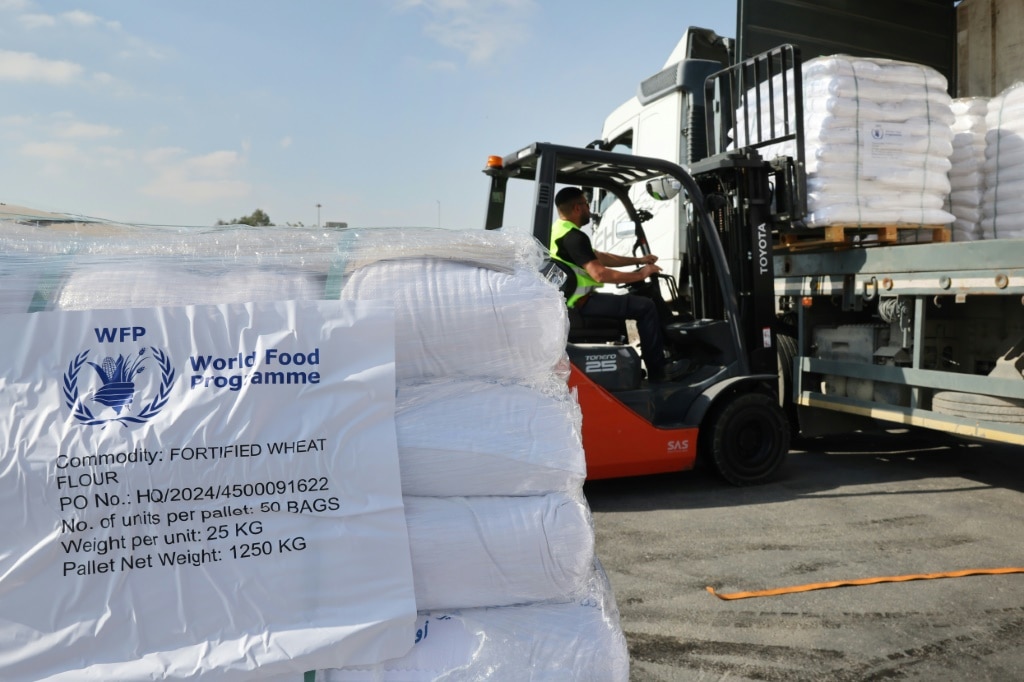Dreams of wealth turn to dust for Qatar migrant workers
Bangladeshi Babu Sheikh lost his sight after a work accident at a construction site in Qatar

Hundreds of thousands of people have flocked to Qatar in recent years to work on giant construction schemes as it boosted its infrastructure ahead of the World Cup.
Drawn by the prospect of making more money than they could ever hope to at home, migrants make up nearly 90 percent of Qatar's population of 2.8 million.
The Gulf state has faced harsh criticism over deaths, injuries, and unpaid wages of foreign labourers.
It has also paid hundreds of millions of dollars in compensation for lost wages and injuries.
Ahead of the world's biggest single-sport tournament, AFP spoke to migrant workers in India, Bangladesh, and the Philippines, as well as their families, about their experiences.
- The bereaved son -
But only Sravan returned home to India. After yet another long shift, his 50-year-old father collapsed and died at the camp where they lived.
"We took him to the hospital... I told the doctors to try again and again to revive him," the 29-year-old said, his voice breaking.
His father, a driver, "used to go to work at 3:00 am and come back at 11:00 pm," he said.
"We had to work in extreme weather conditions and the food we got was not good."
But after taking his father's body back home to the southern Indian state of Telangana, Kalladi never returned to Qatar.
In the six years since, Kalladi has helped other families bring back the remains of relatives who have died in Gulf countries -- but he is now looking to return to make enough money to finish the house.
- The debtor -
But he returned home from four years in Qatar with nothing to show for his efforts after being fleeced of his pay, he told AFP.
"But the sad part is, even being a part of this gigantic beautiful construction, we did not get paid. My foreman took away our time sheets and withdrew all our money and fled."
He paid for his trip with his savings and loans from his father and other relatives.
"I spent nearly 700,000 taka ($7,000) to go to Qatar to change my fate," the 33-year-old said.
"I dreamt of building a better house, living a better life, sending my children to better schools. But none of those hopes came true. I only gathered a pile of debts and now carry the burden around."
He would go for days without food when he had no money, and at times slept on the beach when he could not pay his rent.
"Blood has turned into sweat in our bodies to construct the stadiums. But only for us to be kicked out without money and honour."
The labourers who flock to Qatar and other Gulf countries do so in hope of earning far more money than they could ever aspire to in their home countries. For some, those dreams come true.
There, he worked as a driver, construction worker and welder, including several months on a fire station within a stadium.
"They are good people. Many Qataris helped me."
He returned last month to the central Bangladesh town of Sadarpur, where he was raised by a single mother in extreme poverty.
A die-hard Argentina supporter, he wishes he could watch a match at the Al-Bayt stadium, where he worked as a welder.
"I was treated well," he said.
On a construction site near Doha, Bangladeshi worker Babu Sheikh fell four metres (14 feet) to the ground and fractured his skull.
"When I regained consciousness, I could not see anything," he said. "I asked my brother whether the place was dark. He told me it was well-lit. I could not believe that I lost my sight.
It took 18 months before he could leave hospital, with the bills paid by his family.
Most of the time, Sheikh sits quietly in the front yard of his home. On some days, his son leads him to the nearby bazaar or to the tea stall in the late afternoon where he chats with his childhood friends.
The boy, now five, was born while he was in Qatar, and Sheikh has never seen him.
- Hungry and homesick -
Cario, who spent six years in Qatar, said it was a common tactic among Filipino migrants struggling to survive.
"In the facility there was so much food," Cario, 49, told AFP.
Cario arrived in Qatar in 2012, two years after the country was named as the World Cup host.
The monthly pay in Qatar was more than his basic salary as a Nestle products salesman in the Philippines -- and it went up the longer he was there.
But there were times when his wages were delayed for months and he was forced to borrow money from friends, relatives, or loan sharks.
After three months, Cario managed to get compensation from Qatar's labour ministry, and he flew home.
"The body is yearning to go home, but the pocket isn't deep enough," he said.
...



